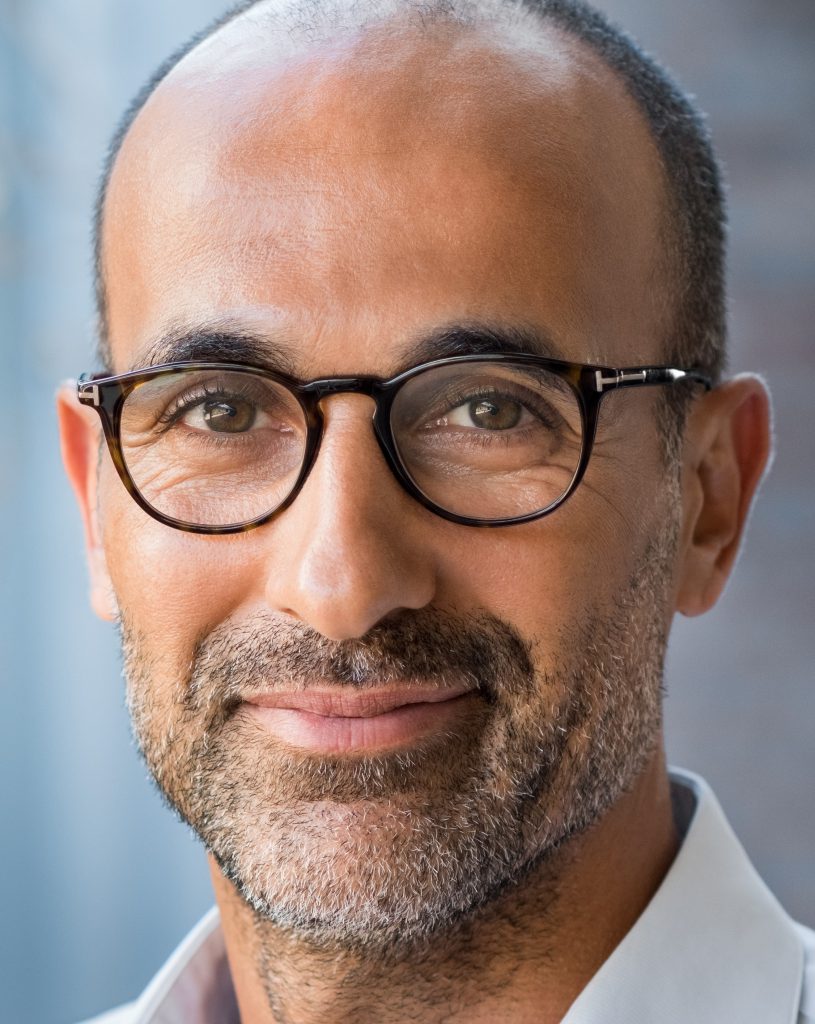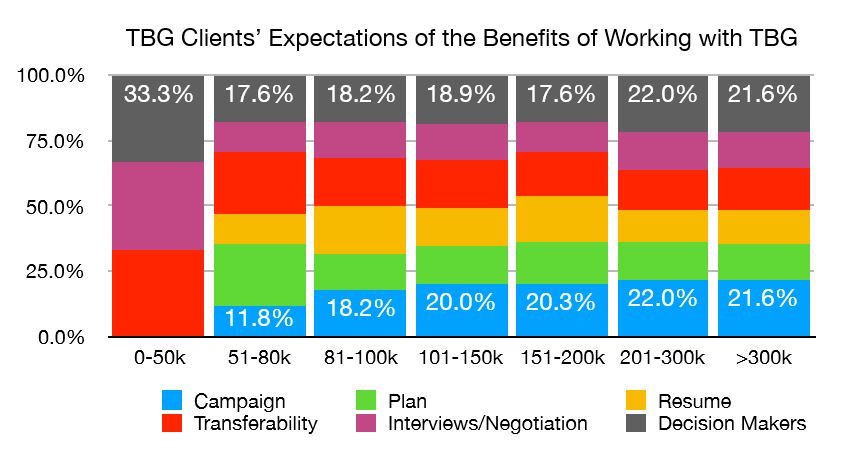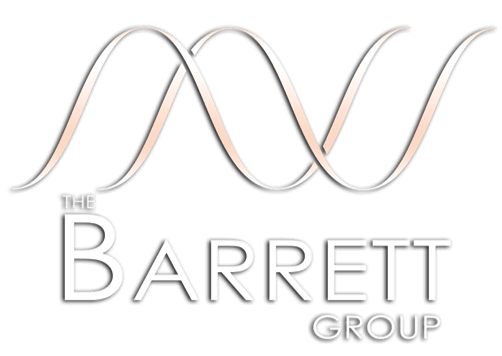The Most Precious Aspect of Human Experience
In my time as a business coach, I often worked with teams. Beyond the non-verbal trading exercise that required executives to communicate without speaking, my second favorite activity was to ask the team “What is the most precious aspect of human experience?”
Inevitably there were a few blank stares and then someone would raise a hand and offer “Love?” “Health?” someone else would propose? “Friendship?” “Wealth?” The list would grow and I would dutifully write all of the proposals on the board until the flow stopped.
Then I would continue, “Now suppose you could have all the wealth in the world, but no time to enjoy it? Or all the love, or health, but again, no time to enjoy them…?”
Next came a collective groan from the team as they realized suddenly that, in fact, the most precious aspect of human experience is probably time. (One might argue that consciousness is even higher on the scale, since without that, one could not even experience time, however, let’s leave that to the philosophers.)
From there I would usually go into a discussion of how the team used their time. Brian Tracy, a well known business coach and author, suggests the dichotomy “important and urgent” as being helpful in prioritizing. Any given subject or activity can be important and urgent, important and not urgent, not important and urgent, or not important or urgent…
If you were to apply this logic to your day to day activities, you would probably find yourself following very different priorities.
So how is this relevant to career change, the subject of this blog?

Well, the point is that your time is valuable. If you are in a job you love that pays you well, good on you and good luck! But most of the executives who approach the Barrett Group are not in this position. Something is not right about their working life. They are in pain emotionally, financially, psychologically… And our role is to act as a doctor, to diagnose the condition, to suggest a prescription or remedy, and then to help administer the cure through knowledge, support, and discipline.
Many executives, though, prefer to procrastinate and to put off the job search for another indeterminate time in the future when conditions will be “right.”
To these executives, and there are very many in this category, I would suggest they reflect on the value of time. Unhappiness breeds ill health, so how much longer should you stick with a role, a company, or a set of duties that makes you unhappy or leaves you unfulfilled?
In fact, our Clarity Program© helps executives clarify their career objectives and develop a robust and wholistic target that takes personal fulfillment fully into account. It also garners a 90% “excellent” rating among our clients.
Tomasz, who heads up our operations in Europe, boils this down to an R.O.I. equation, calculating the return on investment that an executive receives when he or she signs on with the Barrett Group, and it is certainly true, that we accelerate our clients’ job searches.
Think about it: the average executive looks for a new job perhaps 3 or maximum 4 times in his or her working life. We have helped literally thousands of executives over the last thirty years and amassed a tremendous store of knowledge, experience, and tactics that have worked for them. It would be odd if all of this experience did not yield a benefit in terms of time saved and successful job search acceleration. So we, too, make our subtle contribution to the most precious aspect of human experience by saving executives time in their search for professional fulfillment.
That’s one of the reasons we receive so many testimonials and expressions of thanks from our clients, and that makes us feel that our time has been well spent.
Peter Irish
CEO
The Barrett Group
Any Road Will Take You There
… if you don’t know where you are going!
Many years ago when I was in the amusement park industry, the then president of our association drawled this headline in his thick Georgia accent. And it has stayed with me because it is perfectly true.
Think about how you use navigation these days. You generally do not start with step 1, step 2, step 3… No, you start with your ultimate destination in mind and the navigation then helps you figure out how to get there depending on various parameters including traffic congestion, tolls, etc.
We use this exact principle in helping our clients to figure out where they are going professionally up front, so that the career change process is not simply a search for an isolated job. Instead, it lays out a road map for possibly more than one job—a career plan—that will take the client to the ultimate destination.
As part of our Clarity Program© (the “targeting” component of our five-step career change process), we ask the client to spend some time articulating his or her Vision of that ultimate goal. This process is extremely interesting for those who truly engage with it. Let me tell you about one such experience.
Let’s call him Leroy. He is a co-owner of a small specialty construction company in a hot market. He and his partners have ambitious plans to grow this business, so I asked him to elaborate his Vision as part of his Personal Strategic Plan.
Leroy promptly sketched out a business about 25 times larger than the current business. He addressed the quality of his envisioned associates. He highlighted his personal health, his income, and his family and relationships. We ask people to do this in the first person, present tense… as if it has already happened so as to make it palpably real. Then we sat down to discuss his draft.
In this case, I approached it from the point of view of constraints. Why hasn’t this Vision already happened? What is holding it back?
Leroy talked about how there is only so much room to grow in the niche he’s in in his current market. He realized as we talked that he is thinking about expanding to perhaps ten major cities in the US and setting up a mini-organization in each of them. This opens questions about where to focus first, about the infrastructure and organizational form required to support such an expansion, and about the nature of his own role, too, since clearly he cannot both remain highly operational and drive such a roll-out. There is of course also the question of where to find the capital to finance this growth, but let’s address that a little later in the process.
As long as we were probing his draft Vision, I asked Leroy to explore the role he is writing for himself from two other perspectives: a) is the skill set required from him in this Vision consistent with his skills, and b) will the day to day activities required of him per this Vision also bring him satisfaction? These are key questions, of course, since he could potentially write himself a role for which he is ill-suited and that will make him miserable. It’s happened many times before.
Leroy is still working on his Vision as I write this, but we are also taking it now to the next level even as he perfects it. The next piece of the Personal Strategic Plan that is part of our Clarity Program© is the Mission. As we define it, the Mission addresses what needs to change in order for this Vision to become true. Often this is a review of the constraints and then itemizing how the client plans to address each of these constraints and in what sequence.

In this case, Leroy and I came up with a relatively short list of a) management capacity (both skills and working hours), b) management focus (doing versus leading), c) balancing the capital required vs. the return achievable, and d) access to adequate and qualified manpower. Leroy will need to develop a strategy for addressing each of these as he progresses his Personal Strategic Plan.
And so it goes. If you can envision your goal clearly enough, you can prepare yourself, step by step to achieve it. That is exactly how our career change program works and why clients provide testimonials like this one from Megan Lovell:
“Vivek was a great coach! This was my first experience with the Clarity Program© and all the components of it. I needed quite a bit of clarification and he was so patient and kind through it all. He also had great reading suggestions to deepen the knowledge I acquired from it. Although I have to take smaller steps to get to my ultimate goal, he worked extremely hard to help me understand why and formulate tangible goals to get there. I truly enjoyed every phone call I had with Vivek and feel more empowered to make the necessary changes. Thank you!”
Peter Irish
CEO
The Barrett Group
Open Minds Win Big
Closed Minds Lose Out / Open Minds Win Big. As I’ve mentioned before, at the Barrett Group (TBG) we speak to tens of thousands of executives and managers each year. Many of them also fill out a survey and share their thoughts on where they are in their careers, their frustrations with their current situation, where they would like to be professionally in the future, and the primary support they would like from us.
As in most businesses, there is also a sequence of steps that prospects go through to become more and more acquainted with our services. At the second step in the process, we speak in detail about the issues addressed in their surveys and how we can prospectively help them. Some 50-60% of prospects at this stage earn between $100,000 and $200,000 per annum. About 45% of them are currently unemployed when they approach us and of these about 60% have been unemployed for 1-3 months while another 25% have been unemployed for more than 12 months.
Some are, of course, desperate to get back in the saddle and others are not.

About 50% of these prospects feel they are or were fairly compensated and more than 70% say they have specific career plans. Not surprisingly, the lower income group (<$100,000 per annum) feel worse about their current or former compensation (by about 15% points) than the better compensated group.
The emotional needs of the prospects are also quite clear in our client base that features a much higher share of dominant and extroverted individuals (High D and High I in DISC language) than the general population. Correspondingly, the prospects highlighted above fall into two groups that one might generally characterize as “victims” and “victors,” at least that seems to be the case based on the attitudes they project.
On the one hand, the victims cite statements highlighting their frustrations such as “my future earnings are limited,” “at my age a career change is necessary,” “I must get into a new industry,” and “I want a faster career track.”
The victors on the other hand are proactive and confident about managing their careers, citing statements such as “decreasing probability of promotions,” “employer management is changing,” “possible unemployment,” “job lacks challenge,” and “want independence.”
Naturally, the victims also stress the support they want from the Barrett Group very clearly, focusing in particular on “establishing a realistic career plan,” “showing how my expertise can be transferred,” and engendering “successful interviews and negotiations.” The victors generally project more confidence about their own abilities and are more focused on access to “decision makers” and ascertaining an “effective job search campaign.”
Whether you come from a place of frustration or a place of confidence, our Clarity Program© (the first step in our career change process) offers an ideal solution for clarifying your career objectives before you begin the career change process. In any case, it is critical that you approach your career change with an open mind. We have thirty years of experience in this industry. No single executive one could ever have that much experience in changing jobs.
So, simply put, the more open you are to the support we have to offer, the more you will benefit from it.
But don’t take our word for it. Here’s what one recent client had to say about our service:
The resources provided by TBG are invaluable – from resume drafting to business contacts/research, the tools cannot be underestimated. But, most importantly, the genuine service and support from my career coach, George Schulz, helped me land my new position. George’s unrelenting pushes and prods, coupled with motivational and encouraging words, were the biggest asset of the TBG program for me. Many thanks!
Kristina Brown, Senior Counsel at Brown, Moskowitz & Kallen
Peter Irish
CEO
The Barrett Group
Many Happy Returns – Return On Investment
Sometimes our clients are surprised at first to hear about paid search. They ask us, why should I pay for career management services, what is my return on investment?
Let me answer this with examples from my own life. All of the numbers are exactly true. The timing and the circumstances I will keep to myself if you don’t mind.

At one point in my life I was eager to move up and earn more but my employer felt they couldn’t afford it, so I hired a career management firm and paid them $4,500 (a lot of money for me back then). They taught me about myself using the Myers-Briggs Type Indicator, helped me write a resume and provided me with a mailing list. It took about two months until I had a job offer in my targeted industry at a substantial premium.
In that instance, I increased my compensation over the next three years by $150,000 cumulatively, a 33-fold return on my investment.
The next time, I was in Europe. I wanted to change countries and industries. I had no time due to the demands of my role. So, again, I hired a firm to help me research the unpublished market, write a strong resume and take me to market. In that case it took about three months until I had two solid offers in my target market. The return was also good. For $5,000, I added $200,000 in compensation over four years, a 40-fold return.
It gets more difficult sometimes as you get older, so the last time I hired a career management firm in Europe, I actually paid then €20,000. Their process was analogous to our process at the Barrett Group and included a thorough targeting exercise, psychographic analysis of behaviors to improve my self-knowledge, professional photos, handsome, snail-mail packages, and a hand-selected list of board chairmen (and women) in my targeted industries and geographies. We launched the campaign in September. I accepted a job in December.
Over the next three years, I received $600,000 in compensation, again, a 30-fold return.
Then there is the Barrett Group whom I hired in 2014 when I came back to the US. They helped me through a complicated set of career adventures until I realized that I actually did not want another corporate job, but would rather be in business for myself. Today we use the Clarity Program© (our “Targeting” process step) to help our clients clarify their targets up front partly because of my experience in 2014. Ultimately, I bought and built a business in California and the cash return (excluding equity) over five years is again 30-fold.
Are you seeing a trend here?
Yes, I may be unusual, but of the five times I used career management services, they were successful 80% of the time and returned 30-40 fold on my investment.
At the Barrett Group we offer a highly sophisticated, five-step process including our unique targeting step (the Clarity Program©), thirty years of professional experience in career management, hundreds of testimonials. Each full program client is supported by a six-member team, one of who is a negotiation coach. We help clients maximize the offers they receive by leveraging the experience of all of our historical clients to look under every stone and winkle out additional compensation elements before they accept a final offer. Typically this will add $10,000-$20,000 per client, easily offsetting our fees.
Think about the opportunity cost you are incurring by not employing a career management firm yourself. The career market has become more complicated and your time is valuable. Maybe it’s time you explored your options. We look forward to hearing from you so you, too, can enjoy many happy returns.
Peter Irish
CEO
The Barrett Group
Footprints in the Snow
We always try to address topics of broader interest to career changers in this blog. By and large, this means exploring “personas” that we run into repeatedly—whose issues we understand and whose career challenges we can help ameliorate. We’ve been doing this for three decades, so, of course, we have learned a thing or two about helping executives clarify their career objectives and then go out and get that perfect job. Footprints in the snow.
We are different from others in this space in several key ways. One is our Clarity Program© that constitutes the “Targeting” stage of our five-stage career change program. After all, our clients’ aspirations are far more complicated that just a title, salary, and geography. The Clarity Program© treats clients as the unique individuals they are.
Another key differentiator is that fully 75% of our clients land not via on-line job boards or recruiters but via the “unpublished market” where the competition is less and the remuneration is typically higher.

One key skill in navigating the unpublished market is the “information interview”—a telephone or face to face discussion with someone you have probably never met before who has been introduced by a mutual acquaintance. At various stages in my career I have had to conduct hundreds of these. Recently, during some career coaching sessions, I realized that the techniques I have evolved are extremely helpful to neophytes, so let me share a few of these here.
The first is what I call a branching script. As you approach a conversation with someone whose background you might know, but about whom you otherwise know very little, consider the subjects that might be of mutual interest and how you might introduce them in a gentle manner.
For example, when I was in the business coaching business not too long ago, I often found myself having networking discussions on the telephone with people who had no real idea why we were planning to talk. My branching script then began something like this: “There could be several topics of interest between us. For example, do you know business owners who are struggling and would benefit from a highly experienced and confidential advisor, or do you know individuals who might be thinking about transitioning in their careers and who might like to become business coaches, or who would I know that you might like to meet, or…” You may be surprised, but more often than not, my counterparts would say something like, “Actually, number 1 and number 3 sound relevant… Let’s explore.” For an information interview, that is a wide-open door. So consider preparing a branching script before you start an otherwise unplanned networking discussion.
Another technique that seems to work well is to visualize your discussion as a sort of radar diagram with radiating spokes representing different perspectives on the subject.
For example, let’s say you are planning to talk with the CEO of a larger business, not specifically about getting a job there, but more generally to understand what occupies that person and tangentially where you and he/she might have common interests—the classic information interview.
So in this case, one of the spokes on your radar graph might be what customers want from the CEO. Another might be what consumers want. Or employees. Or vendors. Or shareholders. Or the CEO him- or herself… In other words, by walking around the periphery of his or her business, you can get a very good understanding of how that person sees his or her world, where the challenges are and where there may be opportunities. Ultimately, this provides you with insights on how you might position yourself to address those challenges or take advantage of those opportunities were you to join that company or perhaps a competitor in the same industry.
My personal mental image of this process is from a bird’s eye view, looking down on my footprints in the snow as they slowly encircle the subject matter. It helps me make sure I have covered all of the perspectives I planned to cover, and lets me know when I’m finished. I hope you find these insights helpful and invite you to get in touch if you feel you could benefit from further career coaching… or just for an information interview.
Peter Irish
CEO
The Barrett Group
Exciting Developments
We are using this blog to share the experiences of our clients as they embark on their career change journeys. Let’s face it: changing jobs can be daunting or downright scary. That’s why we share. To let you know you are not alone and there is light at the end of the tunnel. Exciting Developments!
Let’s talk about a recent client named Harry.
We first spoke to Harry in January. At the time he was still busy in his own company. But by May he was past that and focused on his career search. Harry was 65 years old at the time, and wanted to work for 5 more years, at which time his son will likely have graduated college. Harry had run his own construction management company for the last 3 years but he was winding things down and finishing up last projects. He and his wife also have a medical billing franchise, however, in the meantime she can run this without him.

Harry had found searching online, and trying to contact recruiters very discouraging, and was looking for a more effective search strategy. His wife was very supportive, too, to the point where she was willing to sacrifice and move to New Jersey if necessary, even though she really preferred Florida.
The Barrett Group (TBG) program kicks off with a Targeting component (our Clarity Program©), then the Packaging, Market Access, Preparation, and On-Boarding stages guide the client to their ultimate success.
During our Clarity Program© Harry came across as a high Dominance, driven personality, who nevertheless demonstrated a coolheaded reserve and reflection under stress. The psychometric element also highlighted a few areas of potential improvement.
For example, Harry had a tendency to
- Take on too much, too soon, too fast.
- Blame, deny and defend his position–even if it is not needed.
- Be disruptive because of his innate restlessness and disdain for sameness.
Indeed, often our clients get in their own way during the career change process, but Harry was open-minded and accepted the need for change in certain of his behavior to his own advantage.
The Clarity Program© also helped him formulate a crisp career target: Senior Vice President of Construction at a significant real estate development firm.
Harry stayed with the TBG program despite his innate restlessness, working through the Packaging, Market Access, and Preparation stages. He embraced the TBG method regarding expanding his social networking efforts (as part of the Market Access phase) and one of his construction contacts introduced him to the VP of Construction as a target company.
That VP, however, was traveling a lot and Harry became panicked when the VP became non-responsive after a few weeks. We helped him stay calm and focused and finally the VP set a meeting with Harry. So we coached him through it. The VP was so impressed that he arranged a direct meeting with the CEO—a great meeting in which the CEO asked Harry to write a white paper laying out changes in the company Harry could implement.
We provided a line by line review of the white paper. The CEO was very impressed by the final white paper, and that, naturally, resulted in an initial job offer. Our clients enjoy support from a six-person team, all of whom got involved in the negotiation brain-storming because there was a lot of room to negotiate. The final offer came in at a total comp of $1.3 million.
Harry landed his new job in less than 90 days, too.
We wish we could achieve such results every day, but, whatever your targets, we can certainly help you reach them faster and more effectively if you follow our process and are willing to work.
Peter Irish
CEO
The Barrett Group
Suddenly Unemployed and in Shock
In these blogs we like to explore situations that can happen to our readers, such as becoming unemployed, in which the Barrett Group (TBG) can really help alleviate job search stress.
Let’s talk about Dominic.
Here’s what our Senior Career Consultant had to say about Dominic in March at the beginning of our engagement:
Dominic just lost his job on Friday so he has a high sense of urgency to get things moving. He has both an MBA and Doctorate as well as speaking 3 languages. Originally from France. He loves to talk but in a nice way. I know that the Clarity Program© will be a tremendous help to him. He wants to move to our full program next week if possible.
How can we help him? He has no idea of how to market himself at a high level. He talks a lot but his approach is scattered. Not sure at all what is possible with his background. Our systems and strategies can make a huge difference in his career.
Very sincere gentleman who needs our help. Our initial discussion lasted over an hour. He loves to talk. He definitely has talent but needs structure big time. Needs to stay in Indianapolis due to wife’s job with which she has had for a long time.

One aspect of our process that clearly sets us apart is that at the Barrett Group we like to explore our clients’ objectives much more deeply via our Clarity Program© because we look at the whole person when clarifying career objectives—not just the targeted title, compensation, and geography—regardless if they are executives, lawyers, people transitioning out of the military, or other professionals seeking support.
During the Clarity Program© we discovered that Dominic, like many of our clients, is a high I (Influencing) and high D (Dominance) with relatively low S (Steadiness) and C (Compliance) dimensions in his natural DISC style. That means, of course, that he is highly extroverted—hence the “talks a lot”—and that he is not very self-reflective or analytical. Helping him recognize these tendencies was key to helping him succeed.
Dominic also emphasized improving Financial Independence and Business Success as the most important elements in his short term objectives.
His Vision (part of his Personal Strategic Plan) included these comments: “I work for a global organization that appreciates my multi-lingual and international capabilities and values me as a unique employee. I live in the Indianapolis area. My annual compensation is $150k, with 401(k). I am in a leadership role.” This is a simple and clear Vision that proved to be highly attainable.
At the Barrett Group we follow a process that begins with Targeting (the Clarity Program©), then moves into Packaging (resume versions plus LinkedIn), then Market Access (here’s where we open up three main markets including the Unpublished Market where fully 75% of our clients land), Preparation (interviewing and compensation negotiation), and On-Boarding.
Our clients are supported by a six-member team including a Clarity Coach, a Career Consultant, a Writer, a Researcher, a Negotiation Coach, and a Client Concierge, so, while it is critical that clients be willing to do the necessary work, they never have to do it all by themselves.
Dominic stared with us in March of 2019. Slightly less than six months later, Dominic wrote to his TBG Career Consultant:
“I was surprised with a letter of offer. While salary was never discussed ever in the 5 interviews that I had with [new employer]. It was a firm and straight forward offer and it was acceptable to me. I accepted that offer officially! My start date will be 9/23.”
We still ring a bell when a client lands, and these days it is sometimes hard to get any work done with all of those bells ringing.
Peter Irish
CEO
The Barrett Group
Are You Tinkering With Your Career or Engineering Success?
This blog is intended to help our readers understand the variety of professionals who come to the Barrett Group with their career in disarray and how we help them find relief, confidence, and, above all, success in achieving their professional aspirations.
Nothing convinces, they say, like success so let’s talk about Frank, age 61, high powered training systems architect for a major aerospace conglomerate—1 out of only 3 who can do his job in the entire company. But Frank felt his career had plateaued and desperately wanted to leave the company because they were not flexible. His location requirements were very specific.
He wanted to move to Northern Alabama so he could be with the kids. His wife Sheila was in on every single interview, so she has been a big part of the decision-making process.

Frank knew there is no future with his current employer. He had been making about $180K but would be happy with six figures to do something he loves in the right location. He felt a strong sense of urgency, too because he had been searching online for three years with no results. Frank has come to believe that the internet has become a millennial channel.
Frank signed on with the Barrett Group (TBG) mainly because he felt that after 3 years of searching on his own he really needed professional help to make a proper transition. We believed that he would be an excellent client, too, (one willing to do the necessary work to succeed) partly because of his wife’s attentive support.
Let’s flash forward now, to how he felt four months later when he signed on with his new employer…
“So, here I am, in a hotel room in Philadelphia, PA where I had this last interview only about 2 hours ago. It could not have gone better
. Simply put, at the 18-minute mark, [my future boss] said, ‘…I cannot think of another thing to ask you. This is just a formality. I think you are going to be a great asset to this team.’
“I want to go outside and jump for joy at the moment. But I will contain myself.”
How did we accomplish this success?
It is the patient application of our tried and true process beginning with the Targeting component (our Clarity Program©), then the Packaging, Market Access, Preparation, and On-Boarding stages that brought home the bacon.
One aspect of this process that clearly sets us apart is that at the Barrett Group we like to explore our clients’ objectives much more deeply via our Clarity Program© because we look at the whole person when clarifying career objectives—not just the targeted title, compensation, and geography—regardless if they are executives, lawyers, people transitioning out of the military, or other professionals seeking support.
If you are just tinkering with your career and getting nowhere, try reengineering it instead and seek the professional support your career deserves, for example, from the Barrett Group.
Peter Irish
CEO
The Barrett Group
Doctoring Your Career
Doctoring your career. Today I want to return to telling you about real people who have overcome their challenges and landed great jobs through their own efforts. (With excellent advice and support from the Barrett Group.)
Edgar is an Orthopedic Surgeon with a double masters, MBA and MSHA. After running the Orthopedic Surgery Department for a state VA, he focused his career on the medical administrative side taking a variety of Medical Director and CMO positions in a number of hospitals. He recently left such a role in March 2019. During our initial conversations he said his objective was to land in another Medical Director opportunity.
However, at the Barrett Group we like to explore our clients’ objectives much more deeply via our Clarity Program© because we look at the whole person when clarifying career objectives—not just the targeted title, compensation, and geography—regardless if they are executives, lawyers, people transitioning out of the military, or other professionals seeking support.

So, it soon became clear that Edgar really didn’t want just another CMO or Medical Director role. His real objective is to leverage his medical experience in an environment looking to improve and impact the delivery and quality of medical services.
He has tried to make such an impact in the hospitals and clinics where he has worked only to be shut down from a higher level. He has thought about think tanks and nonprofit organizations like WHO, UN, World Bank. He also had a real interest in start-ups companies involved within this same arena.
When we started, Edgar was at a loss as to how to achieve his career goal—how to change the focus of his career. He has always been in a clinical environment and laments that he has never had any “career smarts”.
Edgar felt he has been floundering in the weeds, playing in the wrong space and he wants to finally get to the right environment but doesn’t know how to get there. He was looking for help in identifying and breaking through to the right level in health care industry jobs.
Edgar is also a workaholic.
His idea of balance is to work non-stop. He can appear somewhat idealistic but has made some strides in changing the delivery of medical services in the past. He really needed information and guidance to achieve his goal and he is well aware of that need.
His Clarity Program© bore all of this out, of course, because he is a High-I (Influencer) from a DISC point of view but also above the water mark of Compliance and Steadiness. We helped him weed through his garden of professional desires, narrow his focus, and come out with a much clearer, if aspirational, set of career objectives.
Then we helped him pursue it through the Packaging, Market Access, Preparation and On-Boarding stages of our Career Management Program.
Edgar started with the Barrett Group on April 18, 2019 and wrote to his career consultant on August 5th:
“Meanwhile, [the future employer] made me my asking demand finally at 5:45 pm on Friday. Once again, you and Dan were right.” (Dan Resendes is our Chief Consulting Officer.)
Edgar would certainly agree with another Barrett Group medical client, Dr. Gary McCarragher:
“…the team rapidly succeeded in realizing my dream for fulfilling career change as a hospice physician and college professor in the biological sciences. I applaud the Barrett Group’s compassion, work ethic, and above all, their commitment to RESULTS. Kudos to the Barrett Group!!”

In fact, we work a bit like a doctor, collecting the symptoms of dysfunction and dissatisfaction as our clients reveal them, developing a hypothesis, and then delivering a diagnosis in the form of a Career Change Program.
How is your career health? Maybe it could benefit from some professional attention.
Peter Irish
CEO
The Barrett Group
Meeting our Clients’ Great Expectations
As I’ve mentioned before, literally thousands of executives come to us each year with expectations of how we can help them in their career development. Some of them have very specific needs and expectations (such as demonstrating transferability of skills across industries) while others simply realize that they might be great surgeons, lawyers, engineers, or other expert professionals, but in the business of finding that next better, more satisfying, and more lucrative job… they need help.
So, statistically, why do executives come to us?
Our clients’ expectations. We’ve done a little digging and, in the hopes that you might see some commonality in your own needs, we would like to share some of these insights here.
First, there is a definite bias in our sample toward higher salaries. For example, while 55% of those who contact us claim to have earned $100,000 or more in their most recent job, this number swells to over 85% amount those who actually become clients.

This bias plays out at the specific expectation level, too. However, let’s look at the universe of those who contact us first.
In a sample of almost 6,000 prospects, the distribution of how they expected the Barrett Group to be able to help them was surprisingly uniform:
- 18.8% Effective Job Campaign
- 16.3% Professional Career Plan
- 15.8% Superb Communication of my Resume
- 17.8% Demonstrating Transferability of Skills
- 14.2% Support in Interviewing and Negotiating
- 17% Facilitating Access to Decision Makers
Among clients, however, there was a stronger clustering on the Effective Job Campaign and the Facilitating Access to Decision Makers expectations, both coming in at about one-fifth. The uniformity holds up across all income categories for prospects, too, with only a slight trends toward Facilitating Access to Decision Makers as well as Effective Job Campaign and away from Support in Interviewing and Negotiating as income increases.
This trend is however far more pronounced among actual clients among whom the Facilitating Access to Decision Makers and Effective Job Campaign expectations together swell to about 44% vs. 39% among prospects.
As I’ve mentioned before, our Targeting Process, the Clarity Program©, is one reason we are so successful in fulfilling client expectations: more than 90% of our Clarity Clients rate the experience as “Excellent.” And that is largely because we look at the whole person when clarifying career objectives—not just the targeted title, compensation, and geography. Whether they are executives, lawyers, people transitioning out of the military, or other professionals seeking support—our Clarity Program© uniquely facilitates this process.
Whether you simply know you need professional support in your career management process or whether you need specific support on some aspect such as accessing decision makers, let’s talk. We can help.
Peter Irish
CEO
The Barrett Group

